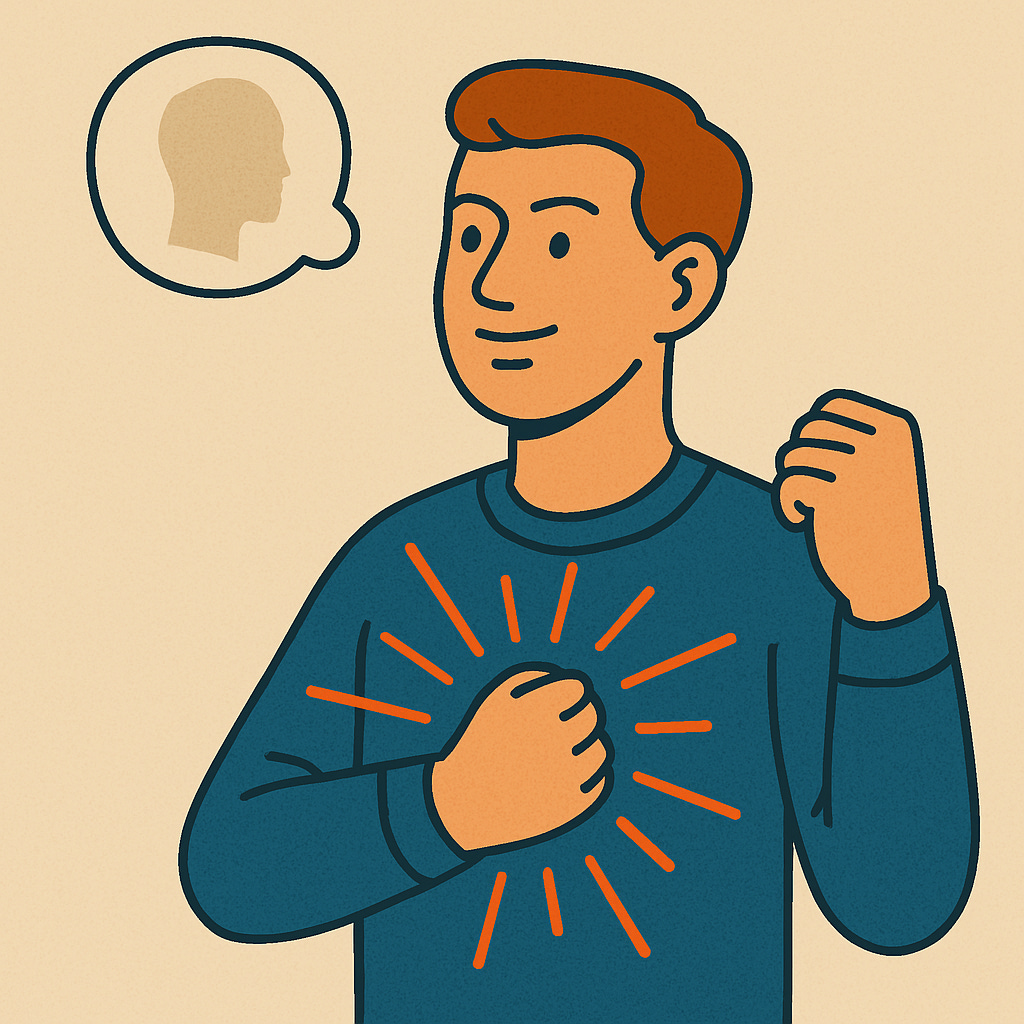Learn to Empower Your Life: Identify Values and Strengthen Beliefs
We all desire to live an empowered life. To do this, there is a seemingly innate desire for people to move forward in life as if the beliefs they're using are theirs alone. Cobbled together from personal experience or painstakingly found by trial and error, personal ideas are owned this way and considered as having emerged from their mind and/or voice out of the silence of the universe. The image of a feverishly working artist comes to mind, shut away in their studio to avoid the impression of the outside world and all the incumbent influences therein. While certainly, this rather poetic image resonates with the, largely Western, notion/value of self-autonomy, the reality is quite another experience altogether. While capable of being dismissed as merely philosophical, the question of personal identification with ideas has, like all good philosophy does, immediate and long-term effects on notions of responsibility and how we treat one another.
It's easy to fall into the trap that knowledge/beliefs are something pursued or grasped, it is precisely this type of language that is used to describe the personal process. From "the pursuit of knowledge" to "she grasped the point of the message," and the additional metaphorical language of "I see" when acknowledging a new understanding, all of these examples are dependent on the physical experience of objects being in some sense external or other than the person. From this, there is an indelible and constant separation between person and object, between mind and world, between self and other.
From this framing of experience, ideas then become like selections upon a buffet table, easily capable of being passed or picked up or discarded, with the impetus for engagement centered on the person. Responsibility for one's beliefs then becomes solely that of the individual, with humanity being apart from the world and engaging with it by sheer will alone. A contrary perspective, one that seems far more realistic, places humanity as being within or a part of the world. Ideas are not then selected buffet-style, rather are identified within interconnected webs with ourselves placed in the middle.
A Web of Beliefs
Let's consider two observations that point to the notion of a web of beliefs.
1. Beliefs exist in a part/whole relationship with worldviews.
Ideas provide the nodes and strings for the web that is how we perceive our lives. Take any social issue, familial connection, or romantic relationship, and how communication difficulties arise in any of them. Words like "life" and "choice" are ideas dependent upon the assumed conclusion; roles within family dynamics are ideas connected to personal history, education, and social influences; the values and desires for romantic engagement are ideas associated with previous relationship experiences, developmental dynamics and the socio-cultural notions explicitly accepted or implicitly being acted upon.
2. Personal identity determines which ideas are acceptable.
Contrary to the mythology of human beings as rational creatures, we do not ever operate outside the realm of personal bias, inner heuristics, or cognitive constructs. At best what a good education and proper training in logic and reasoning will provide is an expanded means of identifying those biases and paradigms, though not in the hope of removing them so much as determining and limiting the extent to which they effect the mental paths of argumentation and justification. Rather than rational creatures, we are story-tellers, with our sense of self or identity at the center, actively selecting the pieces that build a seemingly coherent narrative. What is and is not acceptable as authoritative evidence is selected from within this matrix.
To isolate any single idea and use it to paint the whole of a person is as simplistic and ultimately false as taking a single action and doing the same. At what point in the web of ideas can anyone isolate a strand or node and declare it to be cut off from all others to encapsulate the whole of a person? Pluck a strand and the whole web starts vibrating, the degree to which dependent on how closely it is felt to be connected to one's core.
If there is no separating out of a particular idea then the treatment of one another becomes far more complicated than merely declaring one idea wrong and telling people to change. Declarations of "if you believe in x then you're an idiot or crazy," or "he did this because he believes y" become not merely simple but simplistic, a hopelessly false characterization of ourselves and our social neighbors. Further, demanding immediate change when confronted with opposing evidence also becomes absurd.
Consider how one person dealing with the most incredible of argumentation can refuse the conclusions just as another person when faced with patently bad reasoning can become immediately convinced. The reality of this should make any of us pause and consider just how important a single idea ever truly is. A person cannot change any idea without repercussions from others, which also means that to change an idea requires work with changing the other connections.
Getting away from the "one idea = one action" and "one idea = one person" judgment is not easy. The simplicity of declaring a particular idea wrong is enticing when confronted with a complicated world. The ease of judgment when conflating a single idea with a specific action helps remove the potential for questioning ourselves. To start the journey of expanded understanding is to consciously stop each and every time we consider what a person says and does to ask deeper questions about how they've constructed their world.
Remember that we are not individuals set apart from one another, but parts of a whole.



